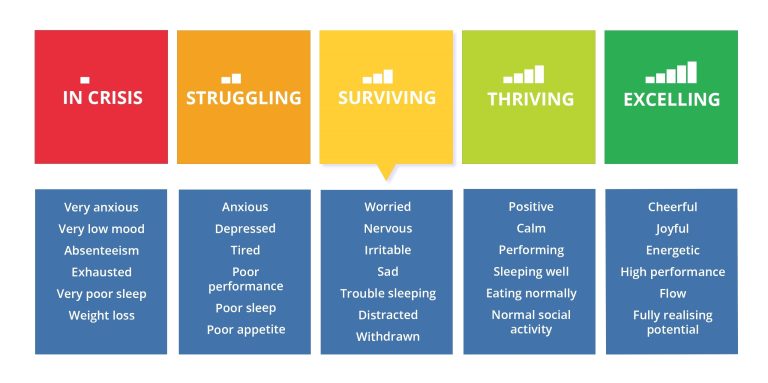Embracing Mental Wellbeing: A Guide for Change Managers Navigating Uncertain Times
Hello, fellow change managers! I’m Dr. Elizabeth King, and I specialize in “Leadership in Uncertainty.” Today, I want to talk about the essential role we play in fostering mental wellbeing during times of organizational change. By proactively addressing mental health, we can create a supportive environment that empowers employees, promotes resilience, and ultimately contributes to the success of our change initiatives.
The Significance of Mental Health in the Context of Change
Change can be both exciting and challenging. It often brings new opportunities, but it can also lead to uncertainty, increased workloads, and the need to acquire new skills. These factors can cause stress for employees, which is why it’s crucial for us, as change managers, to prioritize mental health. By doing so, we can prevent burnout, reduce absenteeism, and create a positive organizational culture.
Our Role in Fostering Mental Wellbeing
As change managers, we can take several steps to support mental health during times of transition:
- Assess the impact of change on employees’ mental health and identify potential stressors.
- Encourage open communication and transparency, ensuring employees understand the reasons for change and how it will affect them.
- Offer adequate training, resources, and support to help employees adapt to new processes or skills.
- Foster employee engagement and collaboration, promoting a sense of camaraderie and teamwork.
- Advocate for work-life balance and reasonable work hours, helping to prevent burnout.
The Mental Health Continuum Model
The Mental Health Continuum Model is a valuable framework for addressing mental health issues and promoting wellbeing during change. It consists of four stages: Healthy, Reacting, Injured, and Ill. By recognizing early signs of stress or mental health concerns, we can implement appropriate interventions and support employees throughout the change process, maintaining a healthy and resilient workforce. Here is an overview.

The Orchestra of Adaptation Metaphor
Think of change management as conducting an “Orchestra of Adaptation.” We guide our employees through the change process, ensuring they have the tools and resources needed to adapt effectively. Like a conductor, we maintain harmony by addressing mental health concerns and helping our employees stay balanced and focused.
Movie for Reflection: Good Will Hunting
“Good Will Hunting” (1997) is a powerful film that delves into the impact of personal change on mental health. While it doesn’t specifically focus on change management in a corporate setting, the movie offers valuable insights into the human experience of change and the importance of addressing emotional wellbeing during times of transition. It serves as a great source of inspiration for change managers to prioritize mental wellbeing and empower employees to navigate change with resilience and strength.
Action
As change managers, our role in fostering mental health amid organizational transformation is pivotal. By proactively addressing mental health concerns, providing support, and using frameworks like the Mental Health Continuum Model, we can create a resilient and supportive work environment. By embracing the “Orchestra of Adaptation” metaphor and reflecting on movies like “Good Will Hunting,” we can inspire ourselves and our teams to prioritize mental wellbeing and face change with courage and determination. Love to hear your thoughts!

About Dr Elizabeth King
Dr Elizabeth King is recognised as a one of Australia’s leading authorities on leadership development. Over the last three decades, she has worked as an advisor, mentor, executive coach, and facilitator, focusing on organisational, team and individual performance in disruptive contexts. She has worked with some of the region’s biggest companies, designing and delivering solutions that build the competencies and culture required for navigating complexity. Dr. King’s work also integrates transparency, accountability, and social purpose—all vital components of leadership development programmes.
Learn more here
